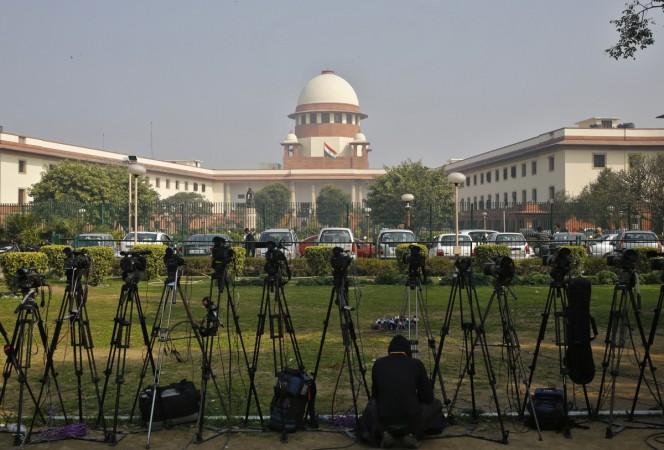Chief Justice of India Dipak Misra held court, along with his successor Ranjan Gogoi, for the last time on Monday, stopping a lawyer who broke into song to wish him a long life to say he was "responding from the heart" but will speak from his mind in the evening.
CJI Misra, who presided over benches that delivered a series of key verdicts like the one on Aadhaar and homosexuality during the last 10 days, appeared to be emotional during the brief court proceedings that lasted about 25 minutes.

The chief justice in his inimitable style stopped a lawyer who started singing at the fag end of the proceedings. "Tum jiyo hazaron saal..." the lawyer crooned, singing the opening lines of a Hindi film song from the late 1950s usually played on birthdays.
CJI Misra immediately stopped him and said, "Presently I am responding from my heart. I will respond from my mind in the evening."
Justice Gogoi, who will take over the baton from Justice Misra on October 3, and Justice A M Khanwilkar were sitting on the bench, which said it will hear no urgent mentioning of matters Monday and added that the matter could be heard later on October 3 by the bench headed by the next CJI.
In a strange turn of events, lawyer R P Luthra mentioned two alleged controversial tweets by senior lawyer Indira Jaising and advocate Prashant Bhushan against the outgoing CJI, criticising his recent judgments, including the verdict in the Koregaon-Bhima violence case.
He urged the court to take cognizance of the alleged controversial tweets. But the bench didn't respond after perusing the tweets. CJI Misra has headed various benches of different combinations and delivered several verdicts in the recent past.

These include upholding the Centre's flagship scheme Aadhaar with certain riders and decriminalizing consensual gay sex and adultery.
The verdicts also include judgments in the Koregaon-Bhima violence case and allowing all women entry into the Sabarimala temple.
Justice Misra was appointed an additional judge of the Orissa High Court on January 17, 1996, before his transfer to the Madhya Pradesh High Court.
He became a permanent judge on December 19, 1997. He assumed charge of the office of chief justice of Patna High Court on December 23, 2009, and became chief justice of the Delhi High Court on May 24, 2010.
He was elevated as a judge of the apex court on October 10, 2011, and became the Chief Justice on August 28, 2017.

















